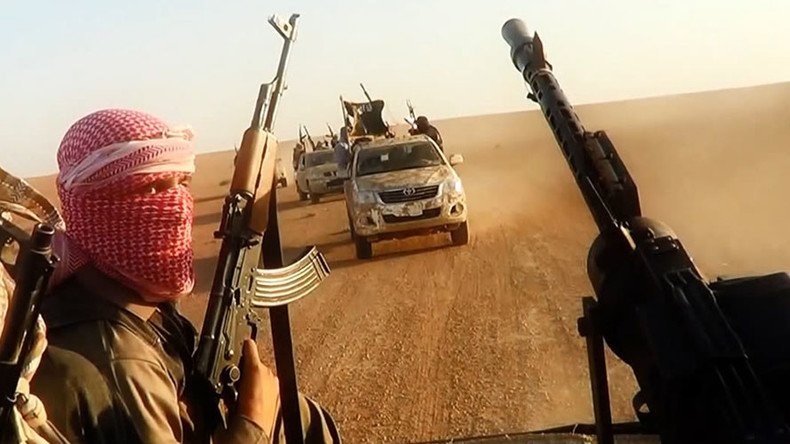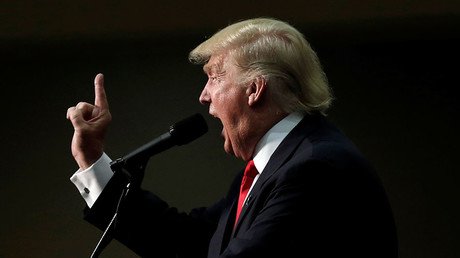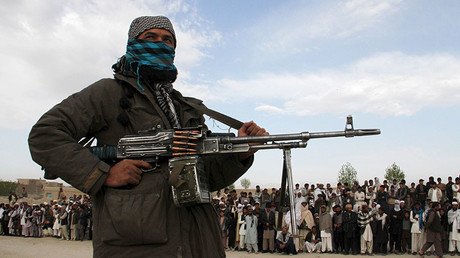Rise of ISIS in Afghanistan is threat to Russia – Moscow

The rise of Islamic State in Afghanistan poses serious security concerns for Russia, Moscow has said, adding that Washington bears responsibility for the current chaos in the country.
Moscow “is concerned over the rise of Islamic State [IS, formerly ISIS/ISIL] in Afghanistan because it has far-reaching geopolitical consequences for Russian safety,” said Zamir Kabulov, the Russian Foreign Ministry's director of the Second Asian Department in Afghanistan.
Kabulov served as Russian envoy to Afghanistan in 2004-2009 and is currently a special representative of the Russian president on Afghanistan.
Kabulov said that about 2,500 Islamic State combatants are currently in Afghanistan.
"They [Islamic State] continue to recruit people and enhance their combat capabilities. If they are not restrained then the chances are that we will have to face an even more powerful force," Kabulov said.
The US bears responsibility for the deteriorating situation in Afghanistan, he added.
"They have reduced their presence and did not resolve a single problem, while creating new ones. They have a political and moral responsibility for what is happening in Afghanistan right now."
The US “cut back their presence [in Afghanistan] and did not resolve a single issue and created more problems. They carry political and moral responsibility for what is taking place in Afghanistan now," Kabulov said.
According to him, Washington’s approach is changing from relatively optimistic to more realistic.
“While six months ago our US counterparts were more optimistic about the situation in Afghanistan, arguing that there are many difficulties but it is possible to overcome them, this time I was impressed by the fact that the Americans were more realistic, they realize that the situation is at a dangerous point, beyond which there is more chaos," he added.
Moscow is still calling upon its American colleagues to take more active steps to handle the crisis, he added.
“It would be good if this more serious approach was transformed into real actions,” he said.
Kabulov said that the US has partially lifted sanctions against Russian cooperation with Afghanistan on helicopter maintenance with Russia’s Rosoboronexport, the country’s state agency for exports/imports of defense-related and dual-use products.
"Nothing prevented them from lifting sanctions against Rosoboronexport in the part concerning delivery and maintenance of our helicopters to Afghanistan. They painted themselves into a corner and had to partially lift sanctions.”
If Russia finds ways to deliver its aviation equipment to Afghanistan, there will be the need to train Afghan pilots, Kabulov said.
“If we find necessary links to deliver more complicated types of military equipment, including aviation, then we will need to train Afghan pilots.”
The US role in Afghanistan has dragged out much longer than originally anticipated, with President Barack Obama canceling the initial plan to withdraw the majority of troops in 2014 in exchange for a blueprint to scale back forces by early 2017.
In July this year, Washington announced that the US will leave 8,400 troops through the end of the Obama administration. President Obama had planned to reduce troop levels from 9,800 to 5,500 troops by the end of 2016, but the increase of Taliban attacks has intensified calls to keep more troops in the country.
Islamic State activities were reported in Afghanistan in late 2014. In April 2015, the Taliban and IS were said to have declared jihad on each other, after IS leader Abu Bakr Al-Baghdadi called Taliban leader Mullah Omar “a fool and an illiterate warlord.” Shortly before that, Islamic State had announced the establishment of “the emirate of Khorasan” on the territories of Afghanistan, Pakistan, India and Bangladesh.














